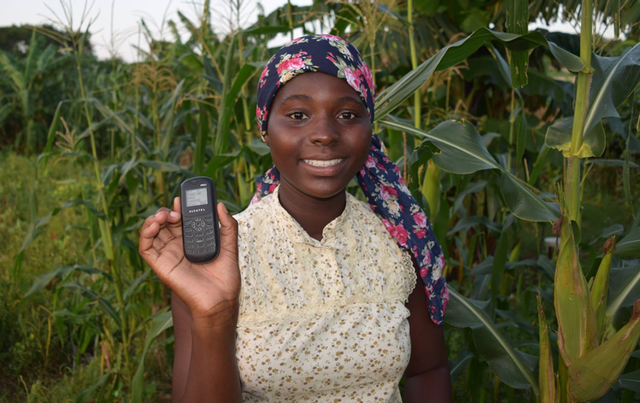
What is e-Agriculture Strategy?
An e-Agriculture strategy is using innovative digital technology solutions like precision agriculture, drones, big data, predictive analytics, and blockchain to improve social and economic outcomes for smallholder farmers.
e-Agriculture programs aim to increase food security by helping smallholder farmers improve modern ICT4Ag farming methods and access to markets. Agricultural ICT4D strategies encompass the full agricultural value chain and includes adjacent technologies like digital financial services and geographic information systems.
Communication in Agriculture
Smallholder farmers have limited knowledge, services, and technologies available to them. They typically need support to adopt modern farming methodologies.
Agriculture technology solutions focus on extension services for farmers to adopt new technologies and innovation. ICTs can amplify the efforts of the extension agents to help farmers plan what crops to grow, source inputs for crop cultivation, and selling their produce in local market.
Chatbots offer an exciting opportunity for governments to engage farmers on the social media platforms where farmers already congregate. For example:
- Facebook chatbots are a popular way to answer basic questions or help farmers apply for government support services.
- SMS text message chatbots can also help private sector companies develop new business leads and educate extension agents on their services.
ICT communication tools can play a crucial role in supporting farmers to access new inputs, credit, and markets with personalized and customized services.
Examples of e-Agriculture Programs
The potential to achieve high impact at the farm-level requires appropriate technology and adoption methodologies. International development organizations can use e-Agriculture communication programs like those below to support ICTforAg value chain ecosystems in developing countries.
E-agriculture is about designing, developing and applying innovative ways to use ICTs in the rural domain, with a primary focus on agriculture. E-agriculture offers...
Published on: May 18 2016 by Wayan Vota - Comments Off on Can We End Famine As We Know It In Our Lifetime? Is Technology the Solution?
“Our policy objective in the aid community, should be to end famine as we know it in our lifetime.”
That was the challenge presented to us by Andrew...
TechChange is launching its first ever online course on Agriculture, Innovation and Technology in coordination with ICTforAg 2016, a premier conference on the use...
June 10th – Washington, DC – Register Now
ICTforAg 2016 will bring together +275 thought leaders and decision makers in agriculture and technology from...
Published on: Apr 13 2016 by Guest Writer - Comments Off on 4 Ways We Can Better Engage Smallholder Farmers Using ICT
An essential component for successfully engaging smallholder farmers using technology comes from providing a voice, a dialogue, with the farmers themselves. This...
An estimated 1.5 billion people live in rural households engaged in smallholder agriculture. These smallholder farmers face tremendous challenges in improving their...
Published on: Mar 23 2016 by Wayan Vota - Comments Off on Please Register Now: ICTforAg 2016 – New Technology for Smallholder Farmers
Please register now for ICTforAg 2016 on June 10th, at FHI 360 in Washington, DC.
This 1-day conference will build on ICTforAg 2015 and bring together +275 thought...
Smallholder farmers have the potential to play an ever-increasing role in feeding the world through sustainable supply of key agricultural commodities. However,...
The Climate Change Adaptation and ICT (CHAI) Project co-implemented by FHI 360, uses ICT tools to provide climate adaptation information to more than 100,000 farmers...
There are numerous demands on a farmer’s time and the complex decisions needed to manage their work and businesses. The panelists at the “Future of Ag Extension...












